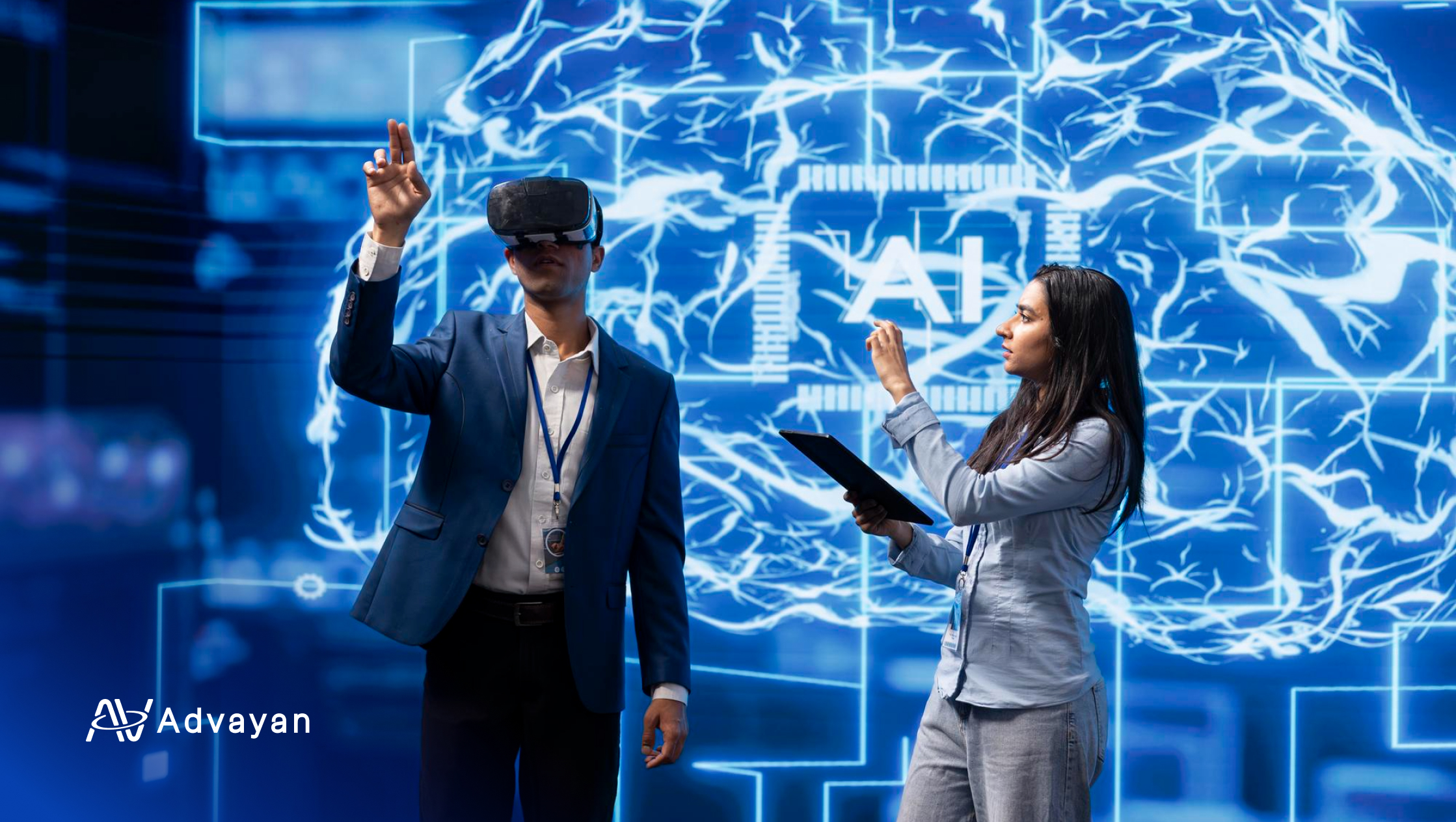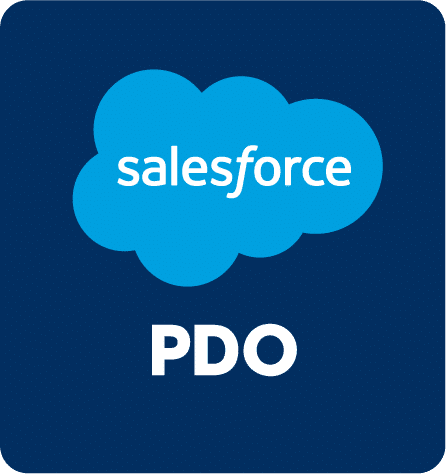
The Rise of Autonomous AI Agents in CRM Systems
Recent surveys reveal that 72% of organizations have combined AI with at least one business function. Business leaders worry about falling behind in AI advancement, with 77% expressing this concern. The business technology landscape has changed dramatically, especially when you have CRM systems where AI agents revolutionize customer interactions.
Modern CRM systems do much more than store data. Heathrow Airport’s success story shows a 450% surge in live chat usage after adding AI chatbots to their CRM system. Salesforce Einstein Bots now manages 65 million customer sessions every month for 3,000 customers. Businesses’ approach to customer relationships has undergone a fundamental change. Half of executives plan to implement AI agents like Agentforce this year, with number reaching 82% in three years. This piece explores AI agents’ impact on CRM systems, spotlighting Agentforce, and examines technologies behind this development. You’ll find guidance to deploy solutions with Agentforce in your business.
What is a CRM System and How AI Agents Transform It
CRM systems started as centralized databases that stored customer information and tracked interactions. These platforms began in accounting departments and grew to support marketing, sales teams, and customer support. Traditional CRMs couldn’t keep up as businesses expanded and customer expectations evolved.
AI-powered CRM platforms have revolutionized the traditional approach. Old systems required heavy IT support for setup and maintenance, but modern AI-enabled CRMs now offer cloud solutions with enhanced features. They analyze huge data sets quickly, providing real-time, accurate insights to employees and customers.
Autonomous AI agents in CRM systems do much more than simple automation. These agents:
- Pull accurate responses instantly from trusted customer data
- Work independently as conditions change
- Complete tasks without human intervention
- Create and manage their own tasks to reach goals
Research shows wealth advisors spend 67% of their time on administrative tasks that add no value. AI agents resolve this by handling routine work so professionals can focus on strategic initiatives. They manage transaction disputes, review customer histories, and issue provisional credits autonomously.
The shift from rule-based to autonomous agents marks a turning point in CRM technology. Early systems relied on rigid automation with high technical costs. Modern platforms—exemplified by Agentforce—now understand context, adapt to evolving conditions, and continuously improve through multi-agent reasoning.
Autonomous agents develop in three clear stages. Specialized agents first master specific industry tasks. Next, agents within companies work together effectively. Finally, agents communicate across different organizations and create new business relationships.
Autonomous agents keep pushing CRM capabilities forward. They now analyze customer feelings, spot performance issues, and shape relationship strategies with predictions. These systems find sales process bottlenecks and suggest better ways to manage the sales funnel.
Key Technologies Powering Autonomous CRM Agents
Agentforce leverages several advanced technologies that empower CRM systems to deliver smart, real-time customer interactions. These technologies are the foundation of modern CRM platforms, processing vast data sets and enabling informed decision-making.
Natural Language Processing for Customer Interactions
NLP enhances CRM systems’ ability to understand and respond naturally to human language. Agentforce harnesses NLP to analyze syntax, semantics, and context clues to interpret customer requests accurately. Additionally, it processes unstructured data from emails, social media posts, and customer reviews to extract valuable patterns. For example, Johnson & Johnson’s predictive analytics group uses NLP to categorize customer calls and gain insights.
Predictive Analytics and Decision-Making Capabilities
Predictive analytics transforms static data into actionable insights using various modeling techniques:
- Regression Models: Predict continuous outcomes like sales revenue
- Classification Models: Categorize data for lead conversion probability
- Clustering Models: Group customers based on similar characteristics
- Time Series Models: Analyze trends over time
These models help AI agents forecast customer behavior and make informed decisions. Predictive analytics studies historical data to identify patterns that help businesses move from reactive to proactive decision-making.
Machine Learning for Continuous Improvement
Machine learning algorithms enable Agentforce to analyze customer data, spot trends, and predict future behaviors without explicit programming. Through reinforcement learning, Agentforce continuously refines its strategies based on feedback, adapting to changing environments and improving performance over time.
Integration with Existing Business Systems
Agentforce seamlessly integrates with existing CRM infrastructures through universal interoperability. This integration ensures CRM databases are automatically updated, maintaining data accuracy and accessibility. It also enables live tracking and instant insight generation, transforming activity logging from a manual task to an automated process.
Implementing AI Agents in Your CRM System
A successful deployment of AI agents in CRM systems requires a well-laid-out approach that begins with a full evaluation of your organization’s readiness. Research, such as Microsoft’s, shows that AI success depends equally on strategic, organizational, and cultural factors—not just technology.
Assessing Your Organization’s AI Readiness
Before adding AI agents, review your CRM system’s compatibility and API capabilities. Focus on three significant areas:
- Business objectives and clear AI vision
- Technical infrastructure readiness
- Data governance framework
Step-by-Step Integration Process
You need careful planning and execution for the integration process:
- List your specific AI needs and rank them based on their effect and feasibility
- Select AI solutions like Agentforce that integrate seamlessly with your current systems.
- Create dedicated teams to pilot each software component
- Plan your testing timeline – this usually takes several weeks to months
- Create feedback channels so you can keep improving
Data Requirements and Preparation
Quality data are the foundation of effective AI implementation. Here’s where to begin:
- Run complete data audits
- Clean and standardize your existing data
- Put data validation rules in place
- Set up resilient data encryption and access controls
Change Management Strategies for Successful Adoption
Your AI deployment needs effective change management to succeed long-term. These strategies work best:
- Educate stakeholders on AI capabilities and introduce Agentforce early.
- Create training programs that fit different user groups
- Keep track of adoption rates and performance metrics
- Design new reward systems that match AI goals
The IBM Institute for Business Value shows that 78% of executives have an approach to scale AI, yet 56% lack processes to review AI output and make necessary adjustments. Clear governance frameworks and open communication channels throughout implementation are vital.
Organizations should encourage a culture of continuous learning and experimentation to create lasting value. This helps people better understand AI technology and demonstrates how solutions like Agentforce can improve workflows without replacing human expertise.
Real-World Applications of AI Agents in CRM Systems
AI-powered CRM systems boost business performance in many operational areas. McKinsey’s research shows companies that use AI in customer service solve 14% more issues and cut handling time by 9%. When implemented with solutions like Agentforce, these systems deliver clear, measurable improvements.
Automated lead qualification and scoring
AI-driven lead scoring looks at big datasets to spot patterns in converted leads. This takes the guesswork out of prioritizing leads. These systems, like Agentforce, make their scoring models better through machine learning based on real conversion results. Companies that use AI to qualify leads get much higher conversion rates because the technology spots the most promising prospects.
24/7 intelligent customer support
AI agents now handle 80% of customer conversations automatically. Powered by Salesforce Agentforce, these give quick, tailored responses by looking at customer data and past conversations. Teams needed 25% less manager help after they started using AI-powered support.
Sales forecasting and opportunity identification
AI forecasting tools analyze win rates and deal speed to predict what’s coming next. Research shows 83% of sales teams using AI—particularly solutions like Agentforce— grew their revenue, while only 66% of teams without AI did the same. The system spots risks in current deals and suggests specific steps to keep sales moving forward.
Personalized marketing campaign optimization
AI boosts marketing campaigns by studying how customers behave and engage. Better analytics help marketers send targeted promotions to specific customer groups. This focused approach typically adds 1-2% to sales and improves margins by 1-3%.
Customer retention and churn prediction
AI systems look at buying patterns and customer engagement to figure out who might leave. The technology checks several key data points:
- How much customers spend and their payment track record
- How often they visit the website and log in
- Which features they use most
- Their interactions with customer service
This information helps businesses take action early to keep customers happy before they think about leaving.
Conclusion
AI-powered CRM systems deliver measurable business results. Companies utilizing autonomous agents, particularly those powered by Agentforce, see up to 14% better issue resolution rates and 9% faster handling times. NLP, predictive analytics, and machine learning come together to drive these improvements.
The evolution from simple data storage to intelligent relationship management is gradual. Organizations often begin with specialized agents for specific tasks and eventually transition to integrated multi-agent systems, leading to smarter customer interactions and reduced manual workload.
Success hinges on proper planning, data preparation, and effective change management. Companies should assess their readiness, invest in quality data, and cultivate a culture of continuous learning. With Agentforce, your CRM system can unlock hidden growth potential—analyzing Salesforce pipelines, predicting churn risks, and creating customized campaigns that cut manual tasks by 50%.
Autonomous AI agents will redefine the future of CRM. As these systems continue to advance, companies ready to embrace change will lead in an AI-driven future, where intelligent automation combines seamlessly with human expertise to deliver exceptional customer experiences.







